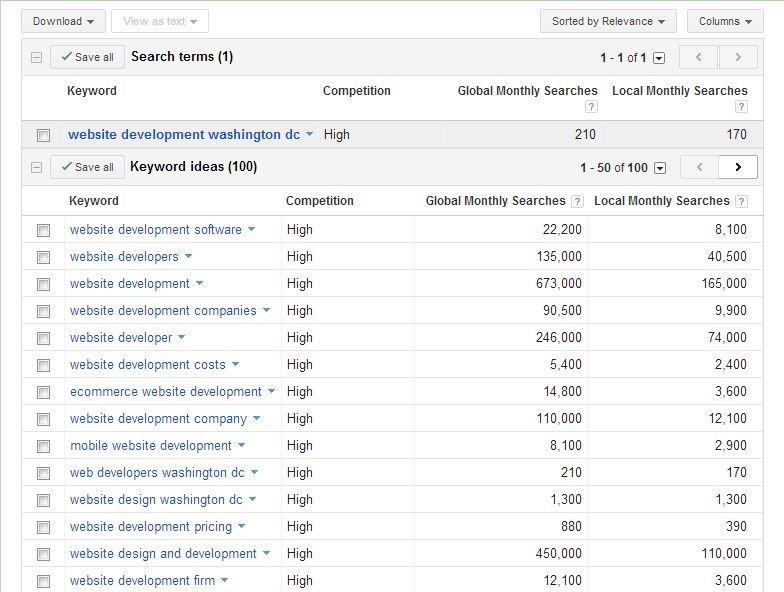For those just starting out, Search Engine Optimization (SEO) can be daunting. The algorithms engines like Google and Bing use are complicated, with hundreds of factors determining the rankings for searches. And due to the complexity of the algorithms there are hundreds of things you can do to optimize your site for search engines. There is almost too much information out there.
To make matters worse there are tons of unethical consultants out there that pray on the confusion, trying to to sell clients on services and products that will have little impact. I know I get unsolicited emails from these folks on a daily basis.
As a result of all this, beginners often grow frustrated and end up doing nothing. They know SEO is important and have a desire to improve their rankings, but aren’t sure where to start. This post is an attempt to provide beginners with a starting point for their effort to improve search rankings for an existing website.
The first step in any Search Engine Optimization program should be to identify the keywords you want to target. I would start out by making an exhaustive list of every keyword combination that you want to appear in the results for. The list should include obvious things like brand and product names as well as more general concepts. Brainstorm keyword ideas with co-workers and friends, as you would be surprised at how differently people use search.
Once you have your initial list, run your terms through the Google Adwords Keyword Tool, which will provide you with information regarding how often the search term is used and how competitive the environment is, as well as suggestions for other, similar keywords you may not have thought of. Here is a sceenshot showing the kind of information the tool provides, using the phrase “website development washington dc” as a sample phrase.

Use this information to refine your target keywords. How you refine your list is more of an art than a science. In picking keywords to target, I typically ask myself the following questions:
Once you pick the keywords you want to target, the next step is to pick what page or pages on your site you want to appear highly in the results for searches for the keyword. You should have at least one page target for each keyword you are choosing.
Using our Brick Factory site as an example, here are examples of pages we would target for various searches:
Once you have paired your targeted keywords with your site content, you’ll want to optimize the page to improve results. There are tons of things you can do, but here are some quick, high impact ways to improve a pages ranking:
While there are a ton of other steps you can take, simply using keywords intelligently in your site content will go along way towards improving your rankings.
Once you have set your targets and optimized your pages you’ll want to start tracking your progress. If you prefer to do this on your own, create a spreadsheet with your chosen keywords once a month and see where you rank. I would track the following information:
While it should be fairly easy to track this manually, tools such as SEOMoz provide an affordable way to automate the tracking and reporting. It also provides you with tips regarding how you can improve your results.
Use the data from these reports to optimize further and tweak your strategy to focus on keywords that actually drive traffic. While it would be great to be the first result for all the keywords you are targeting, the reality is that resources are limited so you’ll want to pick your battles.
Sign up today to have our latest posts delivered straight to your inbox.